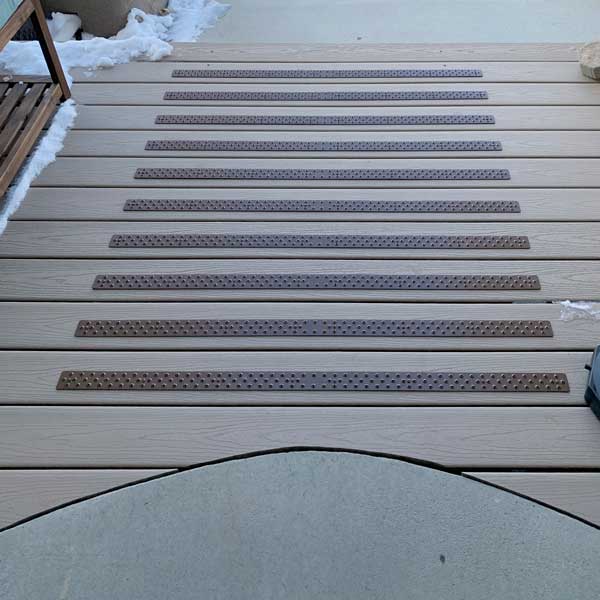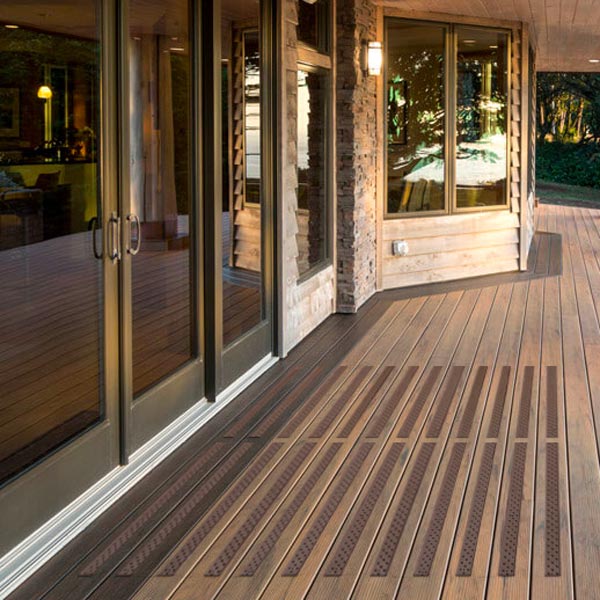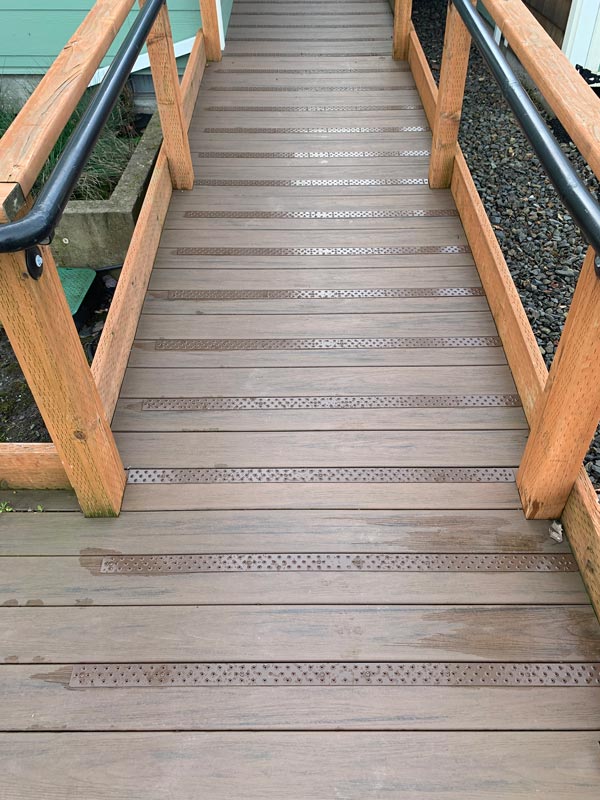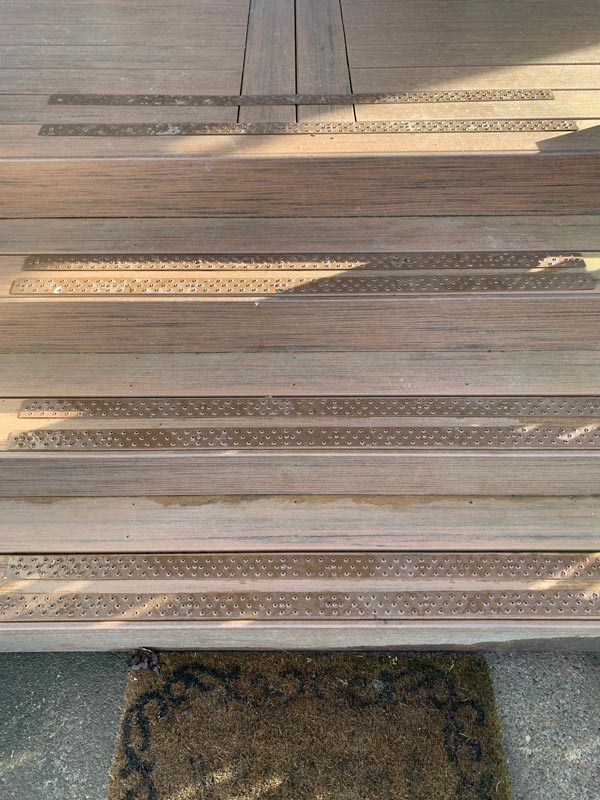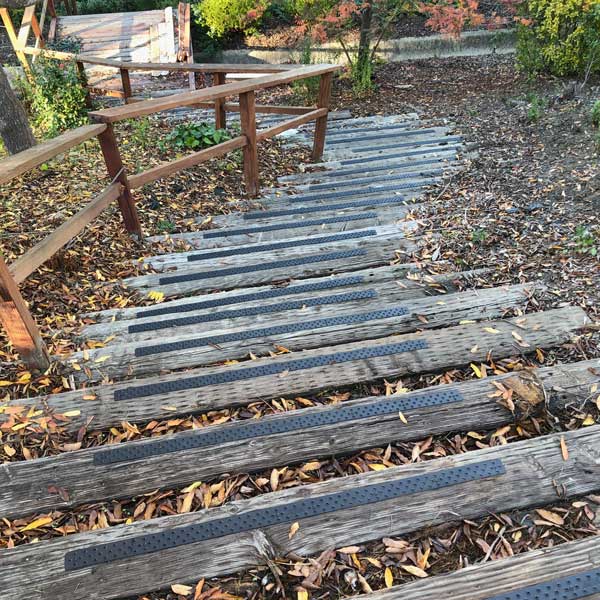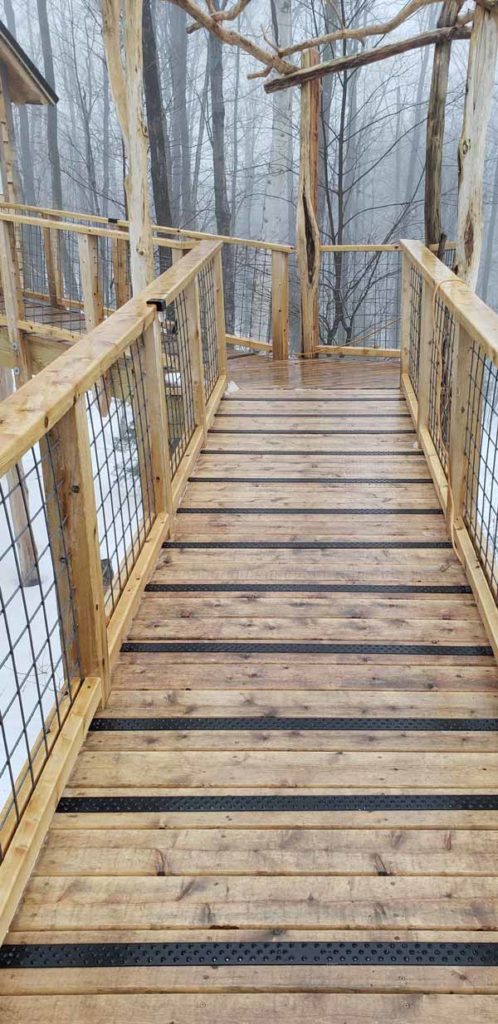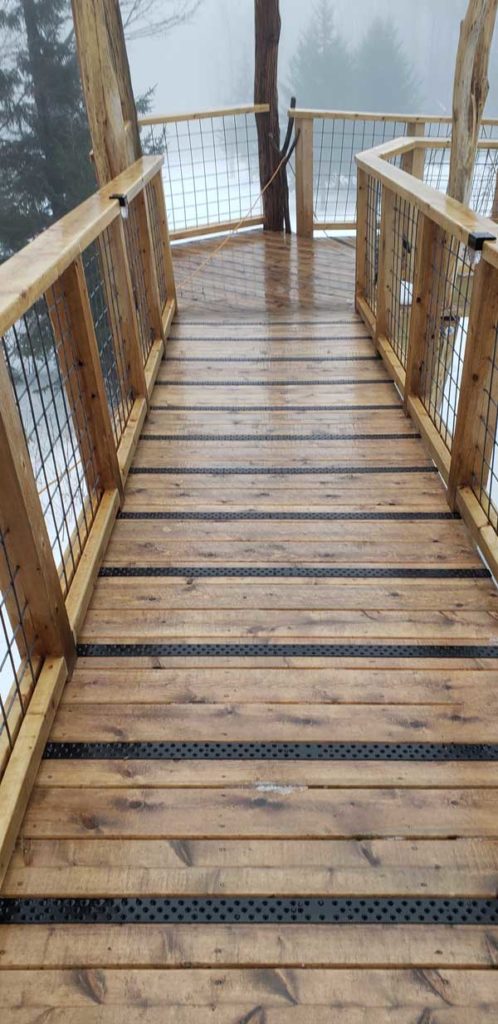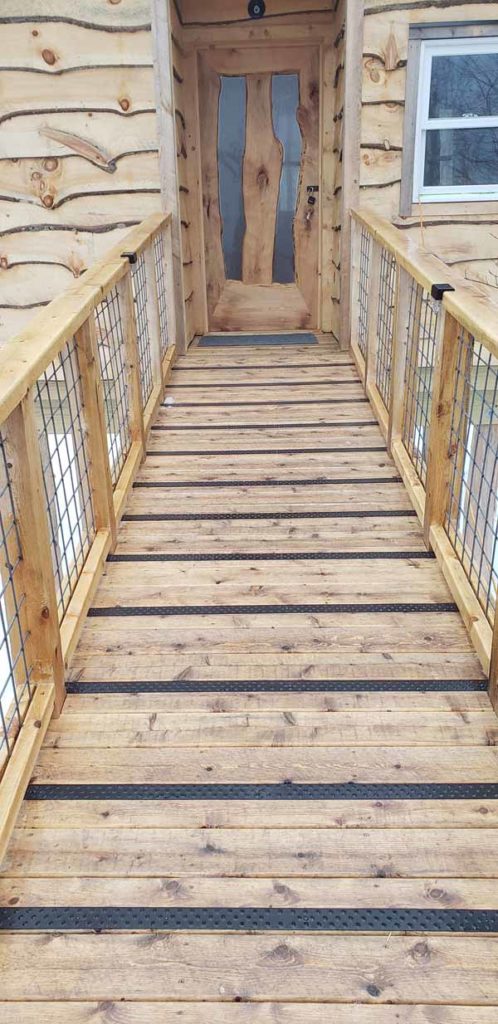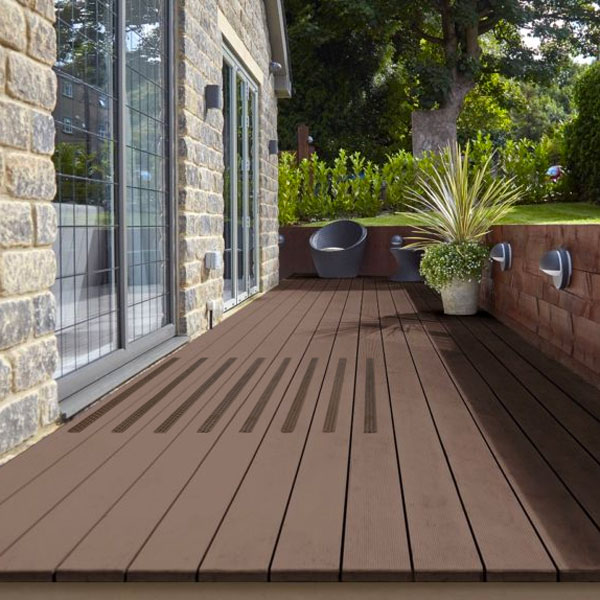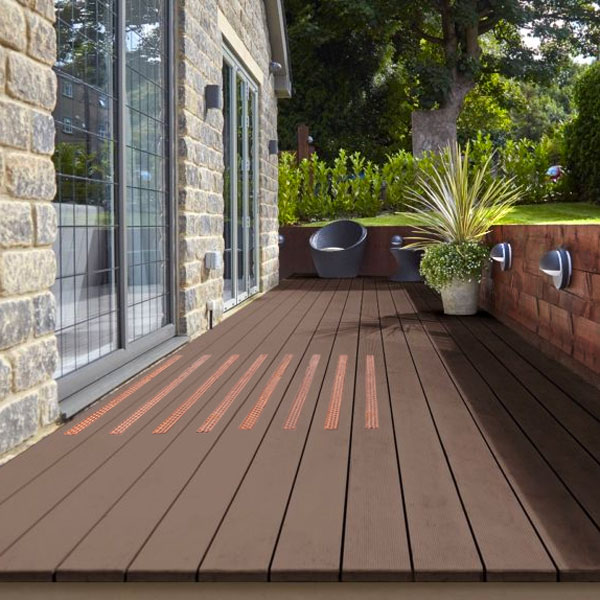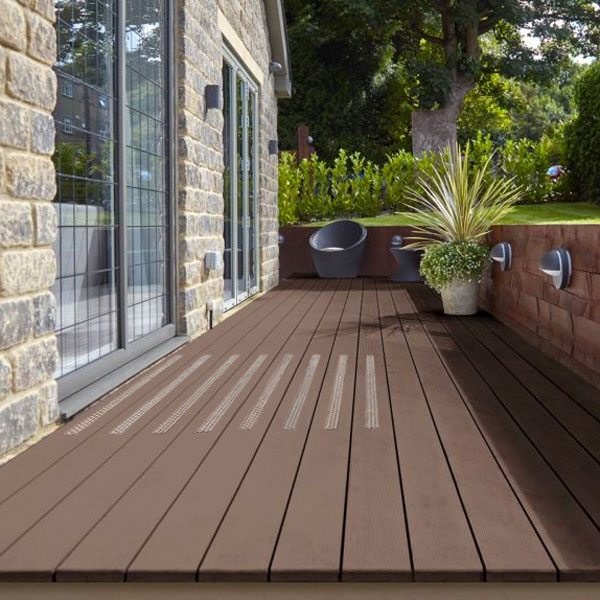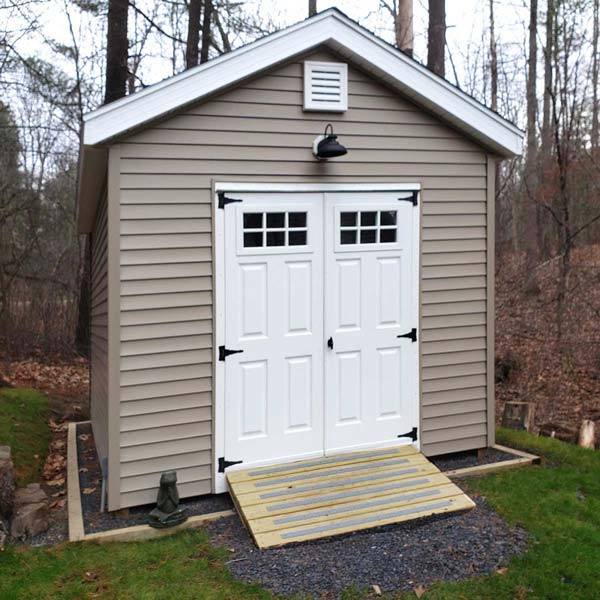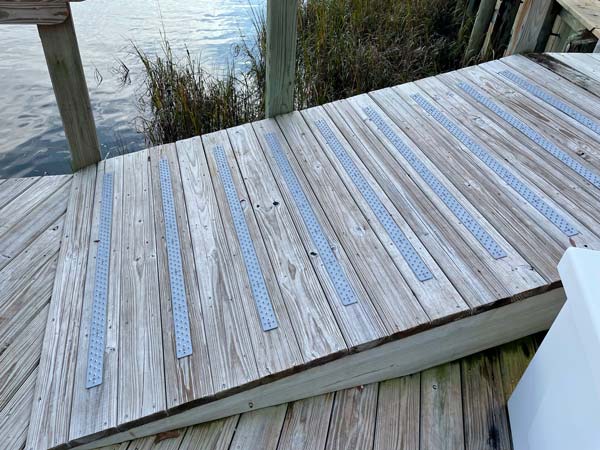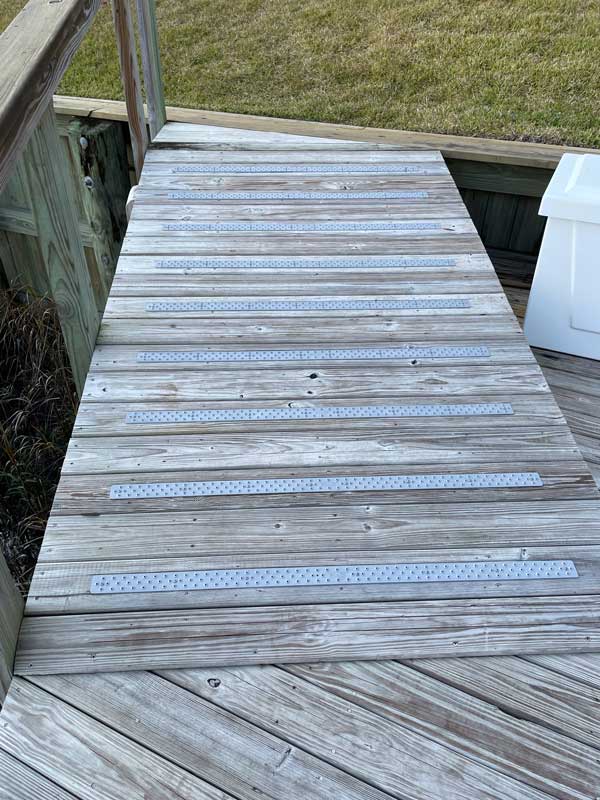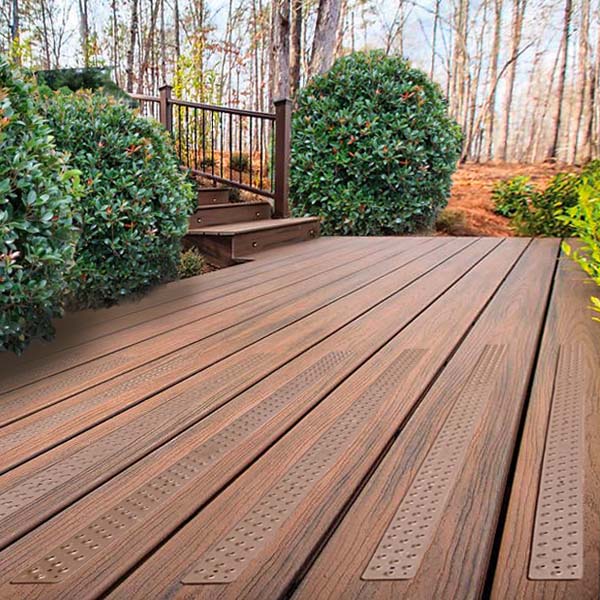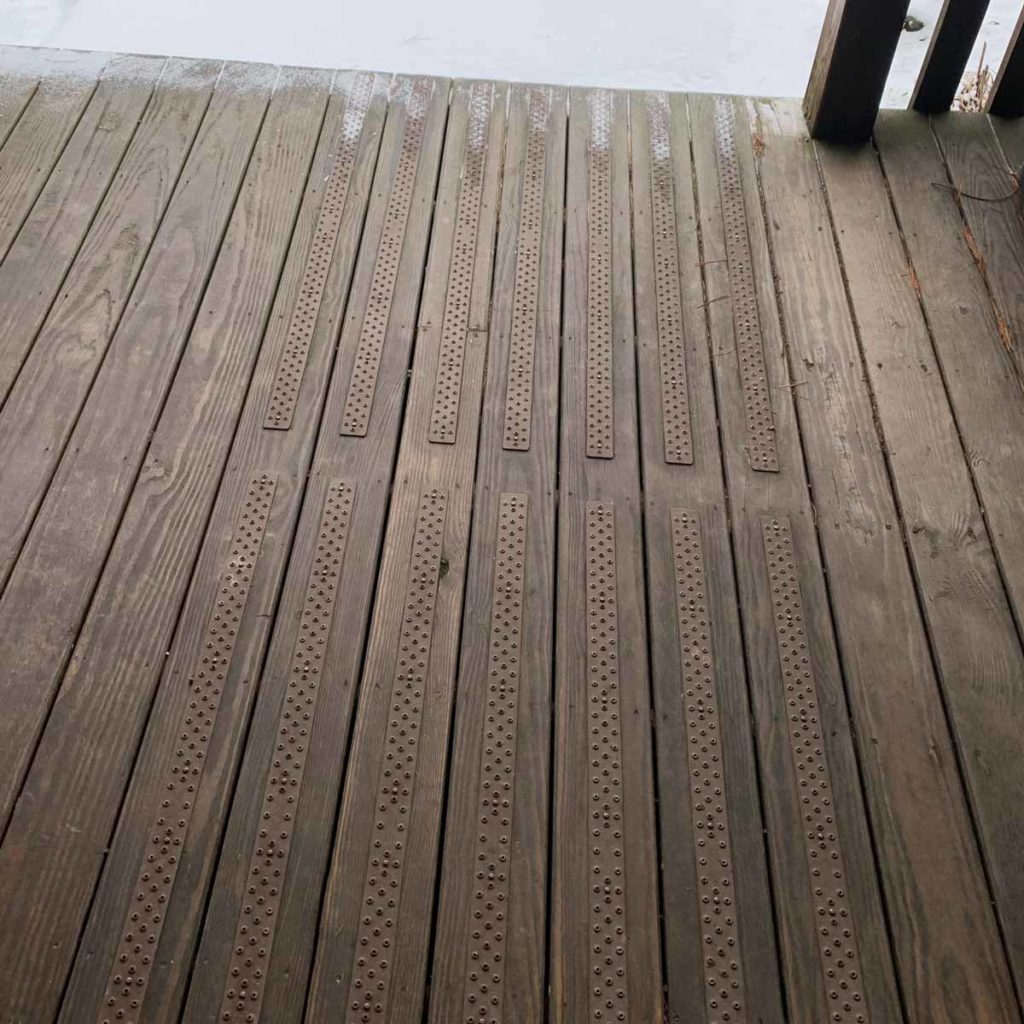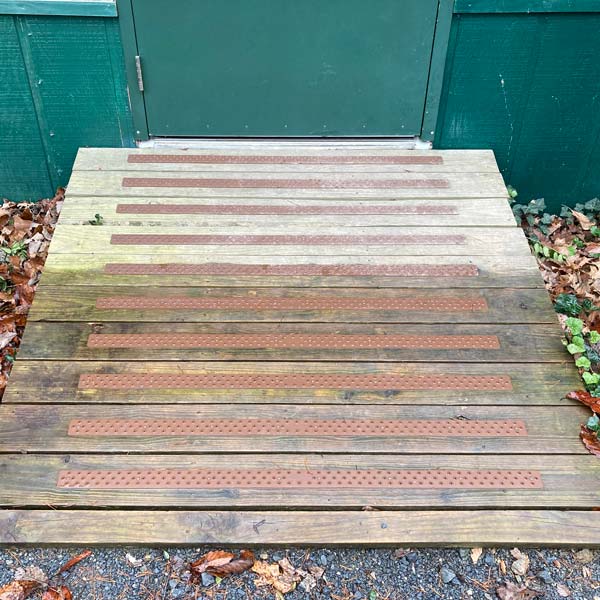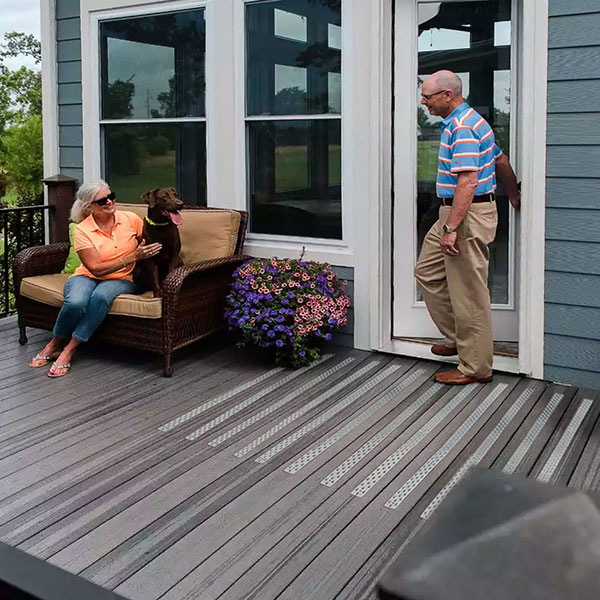SLIP & FALL PROBLEMS AREAS ON DECKS
Wood decks, porches, and patios are often overlooked slip-and-fall hazards. Rain, dew, snow, ice, or even the first frost can make a deck or porch landing and steps very slippery. Debris like fallen leaves can also contribute to the dangerously slippery conditions of the steps, causing anyone walking on them to become susceptible to falls and injuries.
Often decks and patios are painted, and while paint enhances the appearance of wood, the smooth painted surface can hold pooling water or ice. If your deck is in the shade, not only is the sun blocked from melting a morning frost or dew but also the damp, sunless environment can create the perfect conditions for moss, mildew, and mold to grow. These conditions can make for hazardous footing.
Synthetic wood decks present slip-and-fall conditions in much the same way as natural wood. Constant exposure to inclement weather creates wet conditions where slips and falls can occur. Sometimes the wood deck planks begin to cup, forming a shallow “bowl” that tends to hold water, ice, and snow. A quick freeze will turn the pooling water into a dangerous sheet of ice.
As with any slip, trip, or fall hazard, there are ways to help prevent accidents and to mitigate the conditions that can lead to a fall.
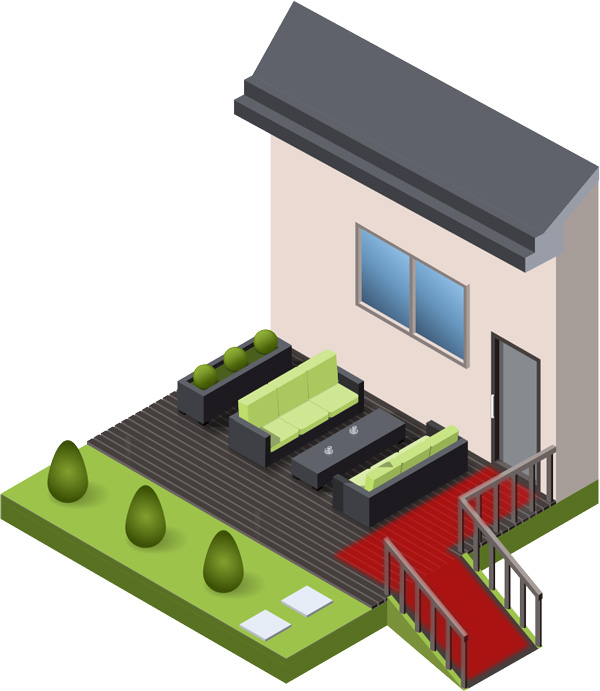
PREVENTION
Paying attention to both your surroundings and the conditions on your porch or deck is the first step to reducing the chances of a slip, trip or fall. The following common-sense steps can help to keep you safe.- Wear Appropriate Footwear Wearing flip-flops might seem a rite of summer, but they’re easy to catch between the wood slats on a deck, sending you for a spill. Similarly, high heels might look great at a fancy restaurant, but maybe start with a pair of flats to make it easier to navigate your way down a long set of snowy stairs from your porch.
- Be Careful When Carrying Items Carrying a pet, bags of groceries or the trash increases the chances of your losing your balance when walking on a slippery deck or front porch. It’s a natural reaction to try and grab something that’s falling from your hands and in doing so the chances of you losing your balance increases. Likewise, a squirming young pup being carried outside to do their duty can pull both your attention and balance away, creating a fall that might otherwise be avoided.
- Keep Porch or Deck Clean: If you’ve got children in the home, don’t let them leave their bats, gloves, skateboards or anything else lying on the porch or deck. Keep the space free from clutter and obstacles that might cause you to trip or perhaps twist and ankle.
MITIGATION
- Improve Traction in High Risk Areas: If all or part of your deck or patio is slippery, you can install devices, like Handi-Treads Non-Slip Deck Treads, at those areas where traction is needed most. Another alternative to a natural wood deck that is slippery is high-quality grit paint like the Slip Doctor Dura Grip and Tuff Grip traction paint that we sell.
- Place Lights On and Around Porches and Decks: Adding outdoor lighting is one of the best ways to help reduce nighttime slips and falls on your deck or patio. There are a variety of decorative lights, lanterns, post cap lights and step lights that will look beautiful and help keep you and your family safe.
- Clean and Seal Wood Patios & Decks: In areas where there’s not much sun, algae and mold can make a wood porch, patio or deck slippery. Using an appropriate sealant, stain or paint can minimize the chance of algae or mold growing and causing slippery conditions.
- Keep the Porch or Deck Free of Snow: If you live in an area were frost and snow are common during the winter months, sweep or shovel the snow off the structures before you compact the snow into ice by repeatedly walking on it. Use de-icing salt, sand or kitty litter to help remove the stubborn layer of ice that may have accumulated.

